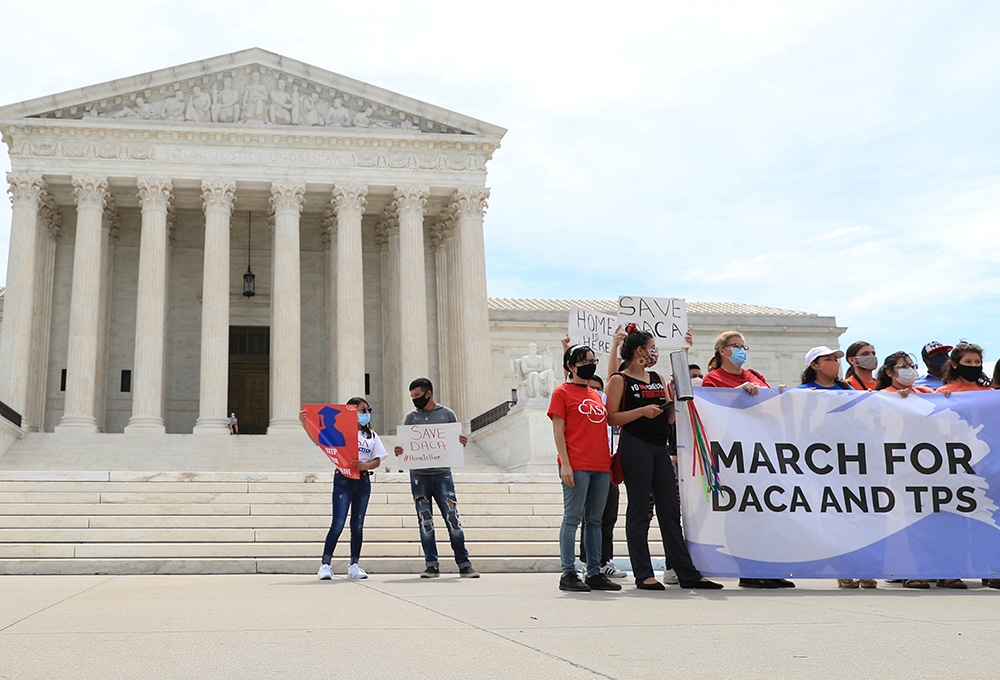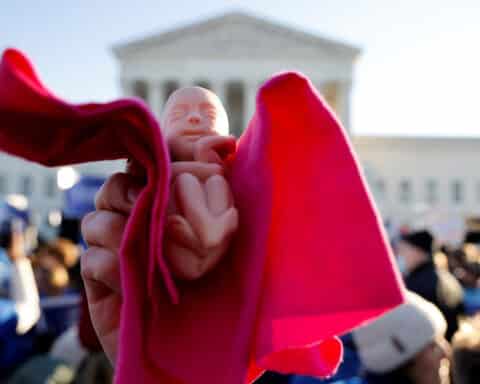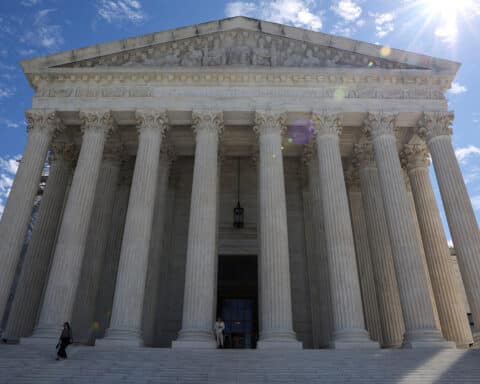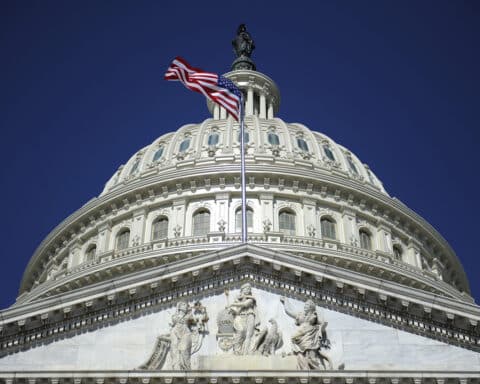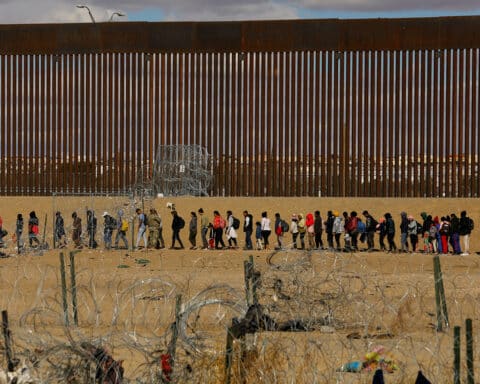The Supreme Court has rejected, for now at least, the Trump administration’s attempt to end a program under which people whose parents brought them to the U.S. illegally years ago have been allowed to remain.
The majority opinion by Chief Justice John Roberts said the administration’s action violated a federal law barring “arbitrary” and “capricious” government action. The ruling returned the matter to the Department of Homeland Security for further consideration.
The Deferred Action for Childhood Arrivals program, DACA, was begun by the government in 2012 with the aim of providing relief to a group of undocumented immigrants widely known as “Dreamers” who have grown up in the United States and put down roots here.
According to one study, DACA beneficiaries “make positive and significant contributions to the economy, including earning higher wages, which translates into higher tax revenue and economic growth that benefits all Americans.”
A friend of the court brief filed in the case by the U.S. Conference of Catholic Bishops and other religious groups said an estimated 27,000 health care workers and support staff are DACA beneficiaries who would lose their authorization to work here if the program were terminated.
Termination also would result in “severe and irreparable personal and social harms of family separation,” the USCCB brief said.
The Supreme Court’s action June 18 produced a complex array of opinions, with several justices concurring in part and dissenting in part. Basically, however, the outcome was 5-4 in favor of DACA.
Besides the chief justice, the five-member majority included Justices Ruth Bader Ginsburg, Stephen Breyer, Sonia Sotomayor and Elena Kagan. The four largely dissenting members were Justices Clarence Thomas, Samuel Alito, Neil Gorsuch and Brett Kavanaugh. Justice Thomas called the outcome in the case “an effort to avoid a politically controversial but legally correct decision.”
Last year the House of Representatives passed legislation called the American Dream and Promise Act that would provide a pathway to citizenship for Dreamers. The Senate has not acted on the measure.
In a June 4 statement, the chairman of the USCCB migration committee, Auxiliary Bishop Mario E. Dorsonville of Washington, called on Congress to “push forward” with enactment of the legislation.
Russell Shaw is a contributing editor for Our Sunday Visitor.

